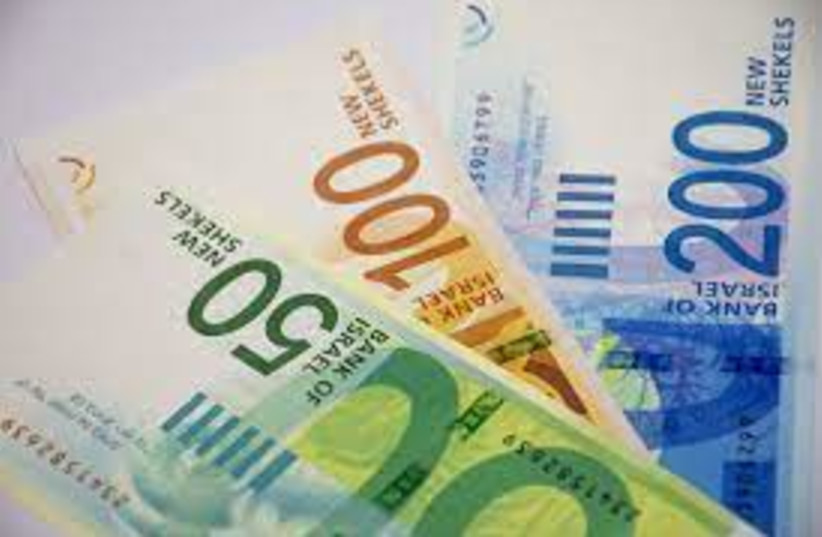Israel’s 73rd year was a year of “who would have thought.”
Who would have thought that a summit involving the foreign ministers of Egypt, Morocco, the United Arab Emirates, Bahrain, the US and Israel would take place in Sde Boker?
Who would have thought that Turkey’s President Recep Tayyip Erdogan would stand at rapt attention while Israel’s national anthem “Hatikvah” was being played at his Istanbul palace during a welcoming ceremony for President Isaac Herzog?
Who would have thought that Israel’s prime minister would be taking on the role of a mediator between Russia and Ukraine in one of the most serious international crises since World War II?
Who would have thought that an Islamist party would sit in an Israeli governing coalition that includes representatives of both hard-Right and hard-Left parties?

Who would have thought that the shekel would be one of the world’s strongest currencies?
Who would have thought Israel would win not one, but two, Olympic gymnastic gold medals?
Yet all of that, which would have been difficult to imagine just a few years ago, actually transpired during the country’s 73rd year.
But not all of the country’s “who would have thoughts” this past year were positive.
For instance, who would have thought that Hamas would fire rockets on Jerusalem because of Israeli government policies in the capital?
Who would have thought Jews would have to hide in their homes in Lod, Ramle and Acre as Israeli-Arabs rioted while the IDF was responding to that rocket fire on Jerusalem?
And who would have thought that 45 people would be killed not in a war or during a terrorist attack, but while celebrating at Rabbi Shimon bar Yochai’s tomb on Lag Ba’omer in Meron?
That, too, transpired since last Independence Day.
ON BALANCE, however, the positives of the past year outweigh the negatives, as the country on its 74th birthday continues to grow and move forward and develop in ways that seemed so unlikely not so long ago.
Independence Day provides a welcome respite from the day-to-day news grind in this country, which is often so depressing as it is full of terror and Iran and Hamas and corruption and domestic violence and constant political contention. It affords an opportunity to take a break from the grasshopper’s-eye view that comes from daily living here: seeing all the weeds, all the time, and only rarely catching a glimpse of the sky and the wider, grassy field.
Independence Day – a laid back day full of barbecues, easy-listening Israeli music on the radio, classic comedy routines on television, and stories about Israel’s achievement in the newspapers – allow the opportunity to take a bird’s-eye view of the country, looking at it from above, from a higher altitude, and thereby gaining some historical perspective.
Historical perspective means not only putting the country in the wider perspective of Jewish history, where its existence after 2,000 years of a most bitter exile is nothing short of a modern Jewish miracle. But it also means putting it in the narrower perspective of Israel’s 74-year-old history: looking at where the country was 10, 20, 30 years ago, and where it is today.
Only those unrealistically nostalgic for a pristine and morally pure Israel that never did, nor could, survive and exist in the real world, especially the real Middle East world; or only those so ideologically jaded that they seem fitted with a pair of glasses that only allows them to see the country’s warts, can look at Israel at 74 and not be amazed by what has been accomplished in just 26 years short of a century.
Only they could not be amazed by how many Jews live here (nearly half of the world’s Jewish population); by how rich, energetic, varied and vibrant life is here; by how well this people, once so powerless, now defends itself; by how innovative it has become; by how more and more countries want relations with it because of what it has to offer; by how it has carved out a relatively normal and happy life for its people in a very abnormal and often unhappy environment.
Does it have problems? Of course it has problems. Does it have faults? Innumerable ones. But should it be defined by those faults? Absolutely not. If anything, it should be defined by its noble efforts to overcome them.
Unlike people, who when they reach the age of 74 are pretty much who they are going to be, Israel – at that ripe old age – is still in the process of becoming, still defining itself, still hashing out issues of identity. Is it Jewish and democratic, or democratic and Jewish? Should it be just Jewish, or just democratic, and what does any of that all mean anyhow?
That these issues are still very much alive 74 years after the birth of the state is at once frustrating – can’t we resolve it all by now, how long should it take for a country to “find itself” – but also very much a part of the state’s unique energy, excitement and vibrancy. It is still growing, developing, slipping, making mistakes, learning from them, making some more, and carrying on.
Israel at 74 remains very much a work in progress. Considering everything it is facing now, and everything it and its people have faced in the past, it also remains a wonder to behold.
